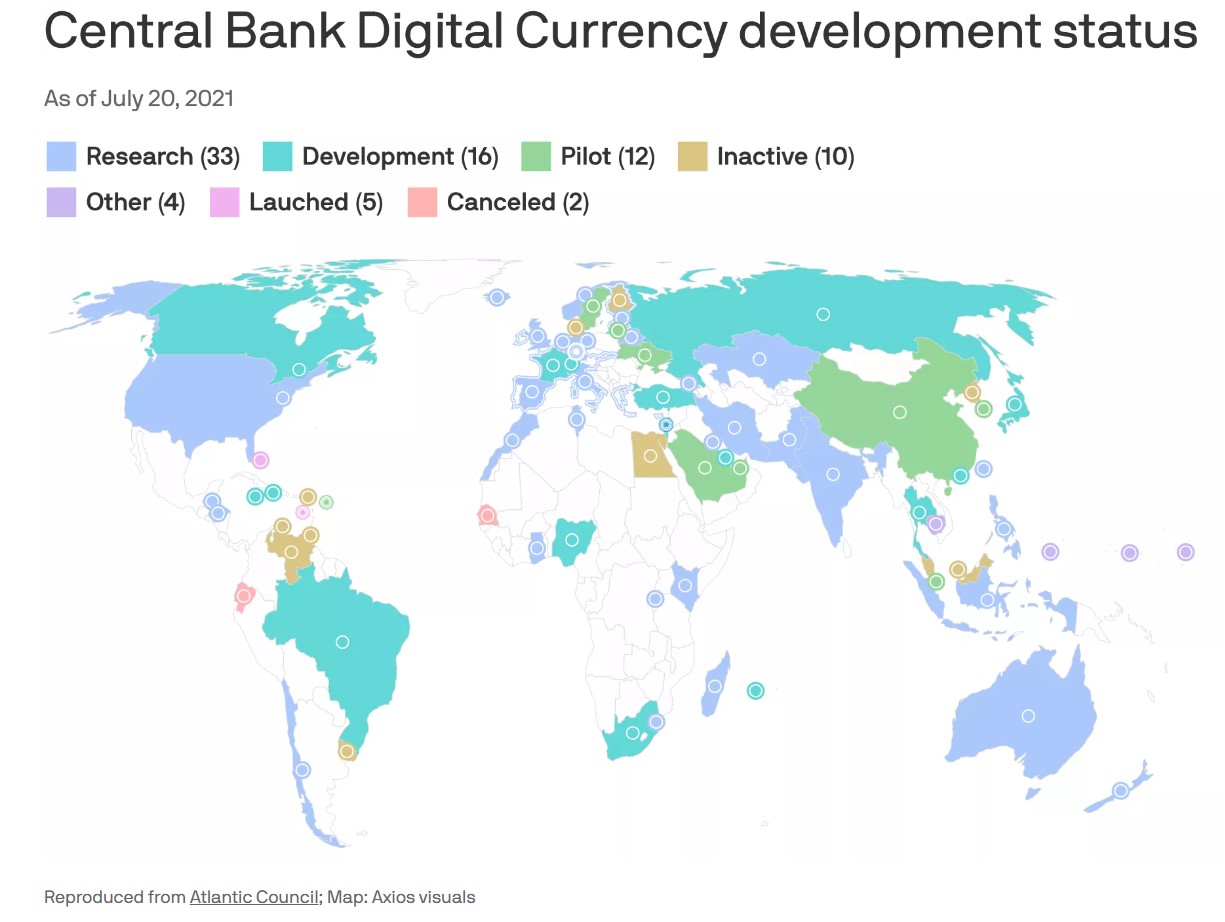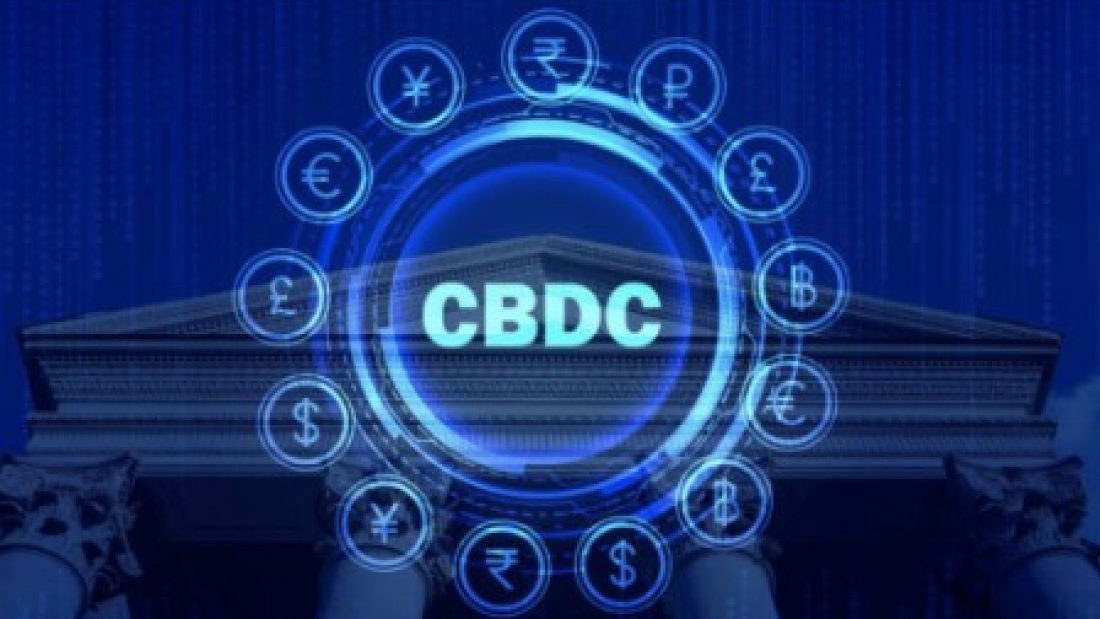When people think of cryptocurrencies Bitcoin and Ethereum are the typical names that come to mind. But blockchain technology and the power of the digital ledger has convinced Central Banks like the Federal Reserve to explore developing it’s own digital asset. It seems that these banks are coming to the consensus that Central Bank Digital Currencies (CBDCs) will allow banks to create a better financial system. It will eliminate payment friction and allow central banks to digitize your financial data which would have great value to society.

There is incredible value in blockchain technology and Central Banks are creating tools to help stabilize world economies and increase the reach of the bank. There are billions of people who are “unbanked” and a CBDC could legitimately help these people enter the banking system. While CBDCs are only being explored in the US it seems that the implementation of this technology is inevitable. Jerome Powell has said a Central Bank stable coin could present real value.
A big hurdle that the US crypto market is working to over come is the lack of regulatory clarity in the space. The SEC’s lawsuit against Ripple (XRP) has thrown a monkey wrench into the industry and has scared away billions of investment dollars. XRP is a crypto currency that offers utility as a “Bridge currency” that enables cross border transactions at a fraction of the speed and price of the current system. This trillion dollar market solution seems to be one that a CBDC would be inclined to tackle. The SEC under Chairman Gensler has sued XRP on the grounds of trading as an unregistered security. This contradicts previous statements from the SEC in the Hinman emails in 2018 that stated cryptos like XRP are not securities because they are decentralized. The changing of this opinion has led XRP holders to claim that the SEC is working on the behalf of the Central Banks in order to help the grow CBDCs and hinder it’s competitors (i.e XRP).
Brad Garlinghouse CEO of XRP stated a key aspect of a security is that owners of a security get to vote in company decisions and that by owning XRP tokens you cannot participate company decision making. This claim is false and can be disproven with Google. There is a major difference in Google A (GOOGL) and Google C (GOOG) stock A shares come with voting rights and C shares do not. Google stock C trading as a security seems to disprove the point made by Garlinghouse.
XRP seems to have a better case in arguing that there was bias in the SEC not going after Coinbase, Ethereum, Binance coin and other exchanges. Here the SEC has been incredibly quiet and has not commented on the manor. Was there prejudice in determining to go after XRP and not it’s competitors? There seems to be momentum building in the XRP case and hope that the SEC will reach a decision on whether or not these crypto’s are securities or not. The decisions in the XRP case will set the course of where financial markets are headed in the coming years.
CBDCs may not have any bearing for many today but it seems like it is only a matter of time until they are regulated and integrated into our financial world. Lawsuits like SEC vs. Ripple and other crypto legislation in the US federal government are key things to pay attention to in order to understand how crypto will grow moving forward.



Leave A Comment